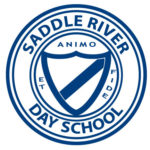At Saddle River Day School, learning begins with an intriguing problem to solve, a story that captivates or a question that provokes curiosity.
During a “Mystery Skype” session with another school, for example, a sixth-grade humanities class asked the mystery students yes or no questions about where they lived. They used these clues, along with maps and atlases, to determine the school’s location. We believe that when students are driven by their own inquisitiveness, learning becomes memorable and meaningful.
Head of School Eileen Lambert describes this principle with conviction. “The learning process is not about testing. It never should have been. Education is about individual children engaging with interesting material and letting the natural curiosity of the human mind flourish. This is what we’re doing. This is the future of education.”
Small classes allow teachers to stay closely connected with each individual’s progress. Our student-to-faculty ratio averages 7:1. Because all three divisions are housed on one campus, Middle and Upper School teachers get to know younger children as learners, and students develop friendships across grade levels. This closeness, combined with an emphasis on acceptance and inclusion, creates a friendly and caring environment where students feel supported personally and in their studies.
It’s easy to love learning when it feels like this.
“We’re not rushing or cramming just to pass a test; we’re really absorbing what we learn.”
–Upper School student
Read more about innovative teaching and technology, our mission and core values or browse the curriculum.
College Counseling
SRDS helps students and parents find the best college that fits the strengths of each individual through our college counseling program. SRDS students have attended some of the most selective colleges and universities in the country and abroad, including Dartmouth College, Cornell University, NYU and many more. Check out our recent acceptances and matriculation lists.

